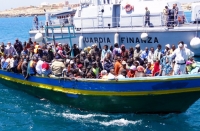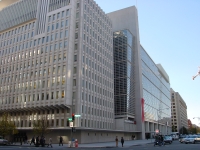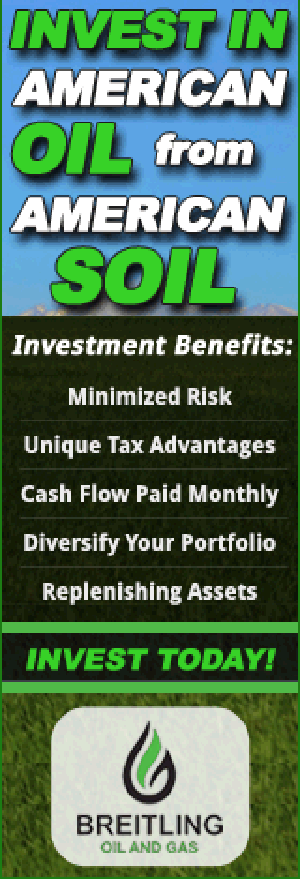Algiers: Algeria continues to post comparatively robust headline indicators,
2015/02/14

Recent years have seen a relatively strong economic performance from Algeria, although the IMF has noted that falling oil prices may weigh down near-term performance, highlighting the continued dominance of the hydrocarbon sector on growth.
Algeria continues to post comparatively robust headline indicators, in distinct contrast to its Eurozone trading partners to the north. The IMF forecasts economic growth of around 4% this year, with government estimates coming in slightly lower at 3.7%, although up from 2.8% in 2013. Over the past five years, Algeria has benefited from comfortable reserves and strong capital spending, which allowed it to ride out the worst of the fallout from the global financial slowdown.
All eyes on oil
However, falling demand from global markets, a surge in supply of shale oil from the US and the revival of operations in Libya and Iraq have combined to push down international oil prices to their lowest point in five years, with prices slipping below the $70 mark, down from roughly $100 a barrel earlier this year.
This prompted a public statement from the finance minister, Mohamed Djellab, in December, with reassurance that Algeria had been able to accumulate substantial currency reserves to help deal with the lower oil pricel. “The financial stability of Algeria will not be affected by the oil price drop (because) the government has measures at its disposal to deal with this type of situation,” Djellab said in a public broadcast. He added that spending on agriculture, education, health and housing would not be affected by the oil price fall.
This followed a statement at the end of October, where Djellab described the current oil prices as “a warning” rather than an immediate threat to the internal budget balance. He acknowledged, however, that the government was monitoring the situation very closely.
In the same month, the IMF said threats to Algeria’s macroeconomic stability were growing due to falling oil prices that may trigger the country’s first current account deficit in 15 years. “The fiscal deficit is expected to widen to over 6% due to lower hydrocarbon revenue, a sharp increase in capital expenditure, and continued high current spending. The oil savings fund remains large but is expected to decline for the second consecutive year,” the fund noted in its report.
“Reversing these trends will require more investment in the hydrocarbon sector...and a significant increase and diversification of non-hydrocarbon exports,” the IMF said.
Tackling the issues
Presenting the draft budget bill for 2015 in October, Djellab said that the Revenue Regulation Fund (Fonds de régulation des recettes), which was established in 2000 to help buffer Algeria’s economy from oil price volatility, had dropped to AD4.42trn ($52.6bn), down from AD5.50trn ($65.4bn) in 2013.
The reserves and revenues still remain strong, particularly when compared against regional neighbours, but the turbulence in the oil markets has served to highlight Algeria’s longstanding structural imbalances.
With roughly two-thirds of Algeria’s revenue coming from the hydrocarbons sector -- which still boasts substantial reserves of at least 12.2bn barrels of oil and more than 4.5trn cu metres of gas – the country has in recent years been able to build up buffers and expand capital spending, such as a $262bn infrastructure initiative, at a time when many other economies have been grappling with austerity programmes.
The government has been keen to involve the private sector in the drafting of its infrastructure investment scheme. However, projects to be included in the 2015-2019 infrastructure plan will not be finalised until the end of this year, according to an official statement released at the end of August. Previous infrastructure investment plans have included projects such as a 1,200-km motorway, water desalination plants and thousands of state-subsidised housing units.
However, with a breakeven price of more than $120 according to the IMF, a sustained drop in oil prices will have a significant impact on Algeria’s ability to maintain its strong fiscal and external position.
As a result, the government has sought to further accelerate its efforts at diversification, particularly in labour-intensive sectors such as agriculture and manufacturing. The government is pushing for economic reforms and a greater role for the private sector to help increase employment prospects for the 21% of the predominantly young population currently out of work, according to the National Office of Statistics (Office National de la Statistique).
- Related Articles

safewater
2015/11/12 Gal Water Technologies Ltd. is backed by 20 years of experience in supplying water treatment systems for Industrial, Agricultural and Consumable water.
North Africa: EU Not Showing 'Political Will' Over Migration Crisis
2015/08/07 The 28-country European Union has told member states that expressing regret over the new migrant tragedy was no substitute for action. Some 200 migrants were feared drowned at the same time as their vessel sank off the Libyan coast. One NGO helping to save shipwrecked migrants in the Mediterranean Sea is the medical charity Doctors Without Borders. DW has been talking to the chief of their German section, Florian Westphal.
The World Bank fails to credit the intelligence of the world’s poor
2015/01/31 At the same time as a statement by the world’s most influential development agency provides evidence that a lot of of its staff are “biased” in their perceptions of the poor and their needs, one may expect eyebrows to be raised. At the same time as the president of that institution — the World Bank, no less — acknowledges the flaw and goes on to call for “measures to mitigate these biases, such as additional rigorously diagnosing the mindsets of the people we are trying to help”, jaws should be dropping.
- Algiers News
-
- ALGIERS: Algeria Year in Review 2015
- ALGIERS: Algeria: Parliamentarians to Vote On Draft Revised Constitution
- BOTSWANA: Africa,Protect Refugees With Mobile Banking
- BOTSWANA: African Union merges science and education bodies
- EGYPT: Euro-Mediterranean virtual energy university endorsed
- ALGIERS: Algerian-African Economic Meeting in 2016
- Trending Articles
-
- CASABLANCA: Morocco wants more Russian tourists
- RUSSIA: Morocco, Russia Set to Promote Trade
- EGYPT: Morocco Bids to Replace Turkey, Egypt as Russian Tourist Destination
- MOROCCO: Morocco Has Africa’s Second Highest Rates of Tax Revenue as Percentage of GDP
- TANZANIA: Tanzania: Fish, Fruits, Tobacco Lift Local Export Price Index,
- KENYA: Kenya: Uhuru Waives Coffee Licensing Fees, Levies in Sotn Address




.gif?1356023993)






